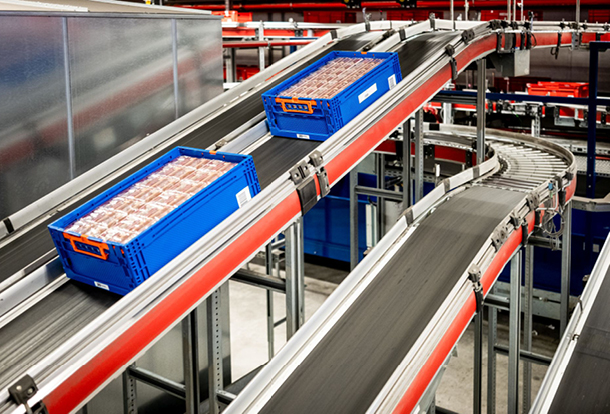Logistics
Innovations
Turning ideas into scalable solutions
In the IKIGAI project, “Logistics Innovations” are practical, real-world pilots designed to address the challenges of sustainable and efficient freight transport. Each one will be tested in operational environments with industry partners, technology providers, and public authorities to ensure that the results are technically sound, business-relevant and have a clear path to replication. Their shared purpose is to create practical solutions that businesses can adopt to improve competitiveness while meeting sustainability and regulatory targets.
These innovations directly contribute to the Physical Internet vision and the Twin Transition by combining environmental performance with digital tools that make logistics more efficient, predictable and resilient. Together, they demonstrate how collaborative approaches, shared standards and smart technologies can reduce emissions, optimise capacity and improve service reliability.
Logistics Innovation 1:
ALICE Express: the Poland–Italy Corridor
This pilot project aims to improve the efficiency of international freight flows between Poland and Italy by focusing on shared procedures for capacity pooling, multimodal coordination and increasing the use of rail transport wherever possible. Partners will align schedules, consolidate volumes and implement data-driven matchmaking to reduce empty kilometres. The expected impacts include higher asset utilisation, more reliable services and reduced CO₂ emissions per shipment. The protocols will be designed for replication on other European corridors.
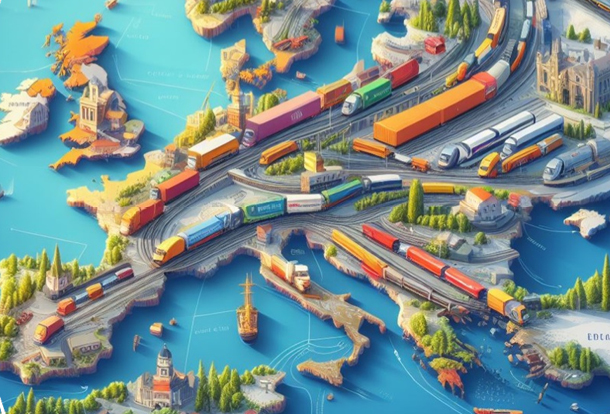
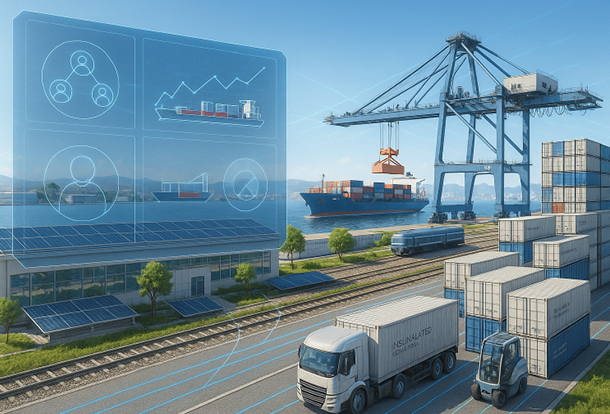
Logistics Innovation 2:
Collaborative matchmaking platform Piraeus free zone (GR)
This platform will connect terminal operators, SMEs and logistics providers within the Piraeus Free Zone, optimising equipment usage, consolidating cargo and streamlining documentation. It will feature eFTI-ready data exchange (tested through eCMR), AR/XR volume measurement and enhanced handling of insulated containers. The solution aims to reduce cargo dwell times, improve operational efficiency and facilitate more environmentally friendly shipments, particularly for small and medium-sized operators.
Logistics Innovation 3:
Smart and synchromodal hub Paris (FR) and Esplugues (ES).
In busy metropolitan areas, this pilot project will coordinate multimodal flows, including river transport, road deliveries and cargo bikes, through a shared digital framework. Smart contracts define verifiable rules for loading, sorting, delivery and returns, enabling multiple operators to share depot and hub facilities. Benefits include fewer vehicle kilometres, reduced congestion, lower energy demand and improved delivery reliability. The governance model will be designed for adoption in other urban settings.
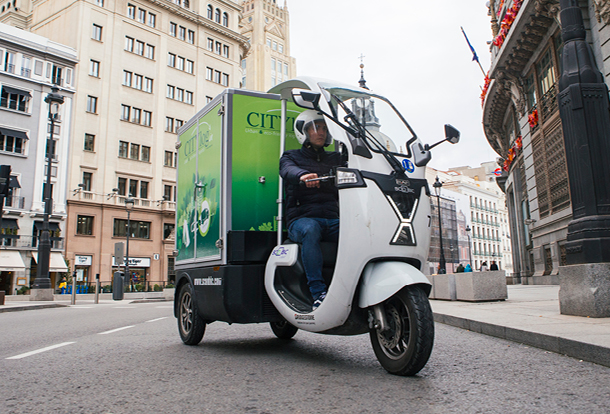
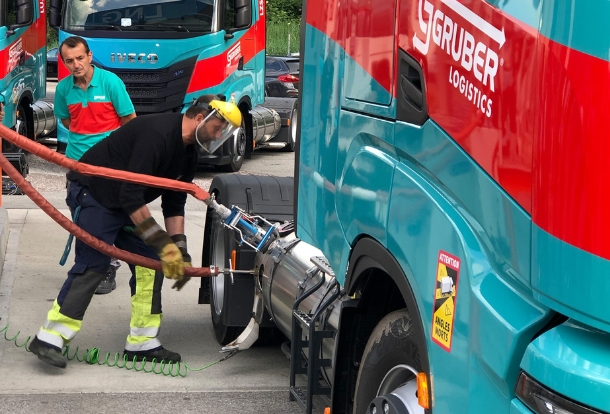
Logistics Innovation 4:
GRUBER’s “Book & Claim” for emissions accounting
This innovation establishes a chain-of-custody model for well-to-wheel emissions data, employing tamper-evident processing to track fuel and activity data from production to consumption. The “Book & Claim” system ensures the transparent allocation of low-emission transport services, reducing double counting and strengthening the credibility of corporate emissions reporting. It helps shippers and logistics providers to align with recognised sustainability frameworks, thereby improving market trust in their environmental claims.
Logistics Innovation 5:
GS1 SMART-Box pooling governance scaling up to Belgium and France
This pilot focuses on reusable, modular packaging and establishes governance rules and best practices for the use of pooled boxes in transport, warehousing and retail operations. Each SMART-Box is digitally activated and trackable, improving asset visibility and utilisation. Anticipated benefits include reduced single-use packaging waste, optimised loading efficiency, minimised product damage and more efficient collaboration between supply chain partners. Guidelines will be provided to help businesses scale adoption across regions
